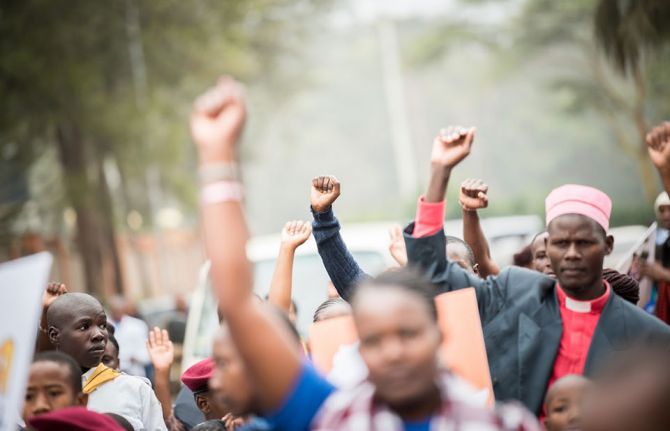

Feature Story
Faith2EndAIDS, Faith2EndInequality
07 June 2021
07 June 2021 07 June 2021Around 300 faith leaders and representatives of faith-based organizations met on 7 June in an online event, Faith2EndAIDS, Faith2EndInequality, on the sidelines of the United Nations High-Level Meeting on Ending AIDS.
Sharing lessons learned by faith-based organizations and faith communities in addressing stigma and discrimination, promoting human rights and increasing access to HIV services, the participants also explored the main areas of action in the political declaration on AIDS and the particular role of faith responses in implementing the commitments.
Practical examples were shared of faith-motivated programmes that increase access for people affected by inequalities, such as programmes for migrants and children. The participants emphasized the critical role that faith responses can play in mitigating stigma.
A key focus going forward is the 12 Million Campaign, where faith leaders, individuals and communities of faith commit to key actions that could promote access to HIV services by the 12 million people who are living with HIV who still do not have quality and consistent HIV treatment, care and support.
The active discussions in the chat box reflected the enthusiasm and commitment of faith communities and people of faith to play a meaningful role in ending AIDS and ending the inequalities that drive the pandemic.
Quotes
“We stand together firmly against the use of faith as an excuse to discriminate and stigmatize people living with HIV and key populations. We proudly recognize the positive results of our partnership and your recent frontline activities in addressing HIV-related discrimination, acting against gender-based violence and bringing quality care and support to all people living with HIV, including in humanitarian settings. Now is not the time to drop the ball on HIV.”
“We have not been able to respond to HIV without you and we will never be able to do it without you ... You have been invaluable partners in fighting HIV around the world. Faith-based organizations have been, are and will be crucial in responding to HIV.”
“The political declaration on HIV and AIDS urges the world to address the inequalities that are slowing progress, through bold political leadership that challenges and addresses the root causes of vulnerability to HIV.”



